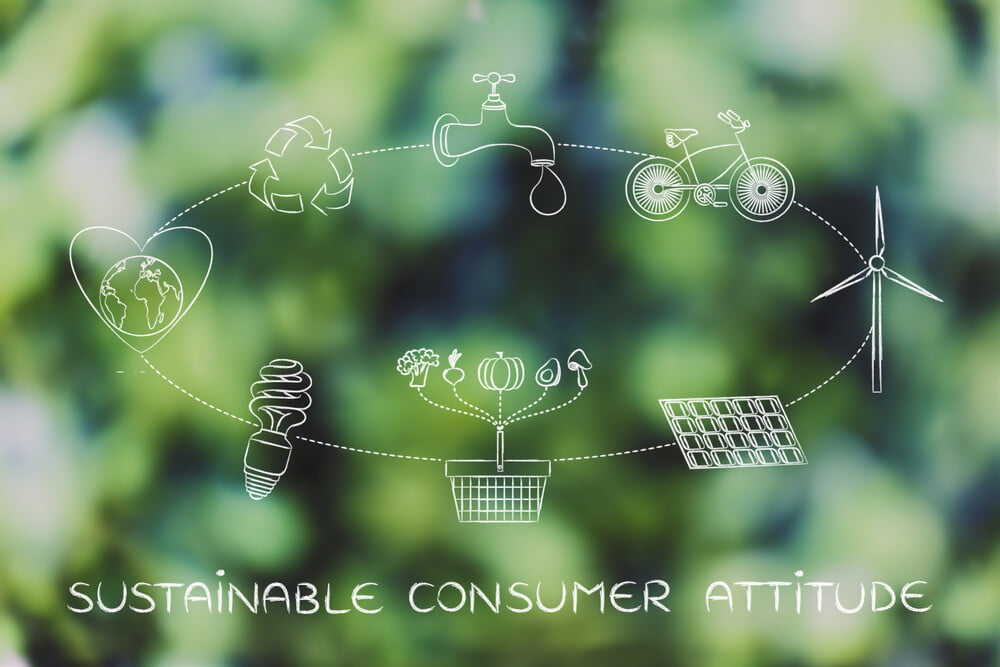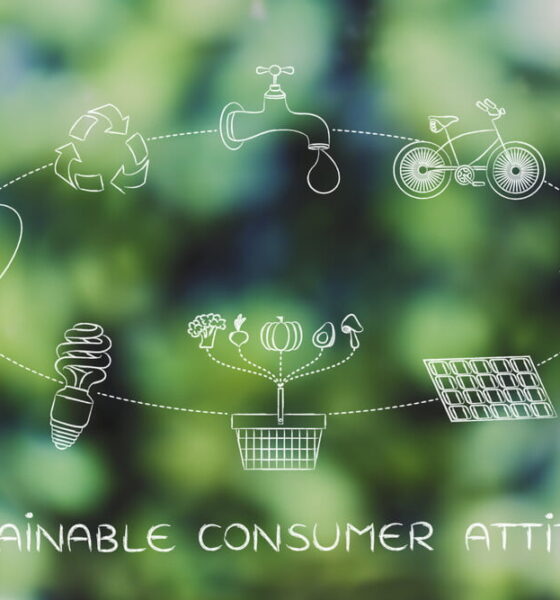

Sustainability
Why Consumers Are Taking Sustainability Seriously
Consumers in the United States (and around the world) are starting to make more sustainable choices, and are favoring sustainable businesses over their non-sustainable and opaque counterparts. The sustainability market in the United States is expected to reach $150 in total sales by 2021, and in the coming years, consumers are expected to make even more choices based on alignment with personal values.
But why is this the case?
The Emergence of Sustainable Businesses
In part as a way to meet public consumer demand, and in part due to intrinsic motivation, many business owners have either launched businesses or pivoted operations to achieve more sustainable practices. For example, Griffith Foods, a purpose-driven, sustainability-forward food development business, which has made a name for itself by developing and producing sustainable food products for food manufacturers and restaurateurs around the world. Griffith Foods is highly rated by EcoVadis, one of the world’s most trusted sustainability ratings providers; EcoVadis has rated more than 65,000 companies in 160 countries and across more than 200 industries.
It’s also interesting to note that 86 percent of S&P 500 companies now regularly publish a sustainability report, detailing their operations, changes, and new strategies to make themselves more sustainable.
Motivating Factors for Consumer Demand
So what’s driving all this consumer demand?
There are many possible explanations:
- The rising threat of climate change (and other forms of environmental damage). The impact of human activities on the environment is becoming increasingly apparent. Excess waste is filling up our landfills. Finite resources are starting to be depleted. And of course, carbon dioxide emissions as a result of human activity is driving global climate change, which could have devastating long-term consequences for the planet. Consumers are becoming increasingly aware of these potential threats, and are interested in supporting businesses that are fighting against these forms of environmental damage.
- Technology and access. Our current age is dominated by technological advancement. We have capabilities today that were impossible just a few decades ago, so environmental choices are easier to make. For example, do you want to drive your gas-guzzling vehicle across the state to visit your friend, or just hop into a video chat?
- More consumer decisions. Technology has also introduced consumers to a much wider range of purchasing decisions. Today, customers can buy from businesses all over the globe, rather than having one or two local options. If there are three companies all offering a similar product for an identical price, it’s easy to switch your decision to the company who cares the most about sustainability. Sustainability has therefore become a competitive differentiator, and a competitive advantage if you can offer these values to your customers.
- Social media and forced transparency. There’s also an argument to be made that companies are held to higher standards of sustainability in part because of the information available to consumers, on the internet and through social media. Social media and other online information outlets have created a kind of forced transparency, which pressures companies to operate more sustainably.
- Virtue signaling and public pressure. Another possible effect of social media is the rise of virtue signaling, or publicly proclaiming certain moral values in an effort to look good in front of other people, or perhaps as a response to peer pressure. Here, the core idea is that certain consumers will buy from sustainable businesses not just because it’s the right thing to do, but also because it allows them to publicly showcase that they’re doing the right thing. In other words, they can brag to their friends about buying from sustainable businesses.
- Self-perpetuation. Consumers favoring sustainable businesses causes more sustainable businesses to emerge. A higher number of sustainable options means that consumers have more opportunities to buy from sustainable companies. These effects form a kind of self-perpetuating feedback loop. Over time, it has created far more sustainability-conscious consumers and far more purpose-driven, sustainability-forward businesses. This effect will likely continue to compound in the future.
It’s possible to debate that some of these effects are more powerful than others, or even that some of these effects don’t exist. But one thing is certain: consumers care more about the sustainability of the businesses they purchase from than they ever have before, and companies like Griffith Foods are eager to exceed customer expectations. In the next several years, we’ll likely see the vast majority of businesses compete to see who can become the most sustainable, as consumers will consider sustainability even more when making purchasing decisions.


 Environment12 months ago
Environment12 months agoAre Polymer Banknotes: an Eco-Friendly Trend or a Groundswell?

 Features11 months ago
Features11 months agoEco-Friendly Cryptocurrencies: Sustainable Investment Choices

 Features12 months ago
Features12 months agoEco-Friendly Crypto Traders Must Find the Right Exchange

 Energy11 months ago
Energy11 months agoThe Growing Role of Solar Panels in Ireland’s Energy Future




























